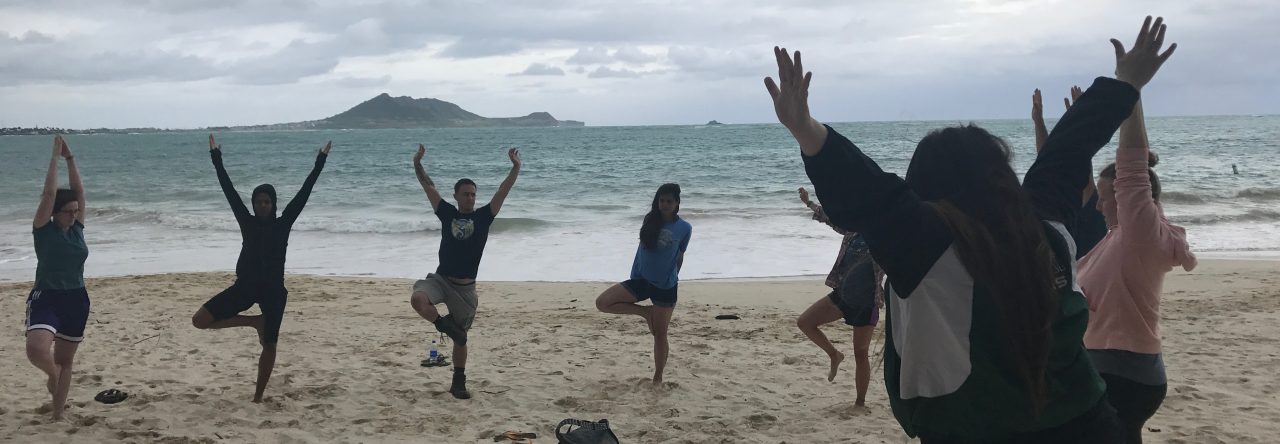
Bolton Kirchner, a 21-year old senior at Millsaps College in Jackson, MS, is one of three Eco-Steward interns serving in West Virginia this summer. He is certainly using his education this summer: he majors in environmental studies with a minor in faith and work.
After being commissioned as an Eco-Steward in May, Bolton returned to Millsaps to take a month-long summer course in what he described as “business sense for non-business majors.” On 26 June, he returned to West Virginia and began his seven-week internship with the West Virginia Ministry of Advocacy Workcamps (WVMAW).
Kirchner spends most of his time at the WVMAW’s site in Montgomery, the largest of the program’s five sites. Each site partners with a church and a construction supervisor. Although the WVMAW was once a PCUSA mission, “it now stands on its own as a 501-3C,” (a non-profit), according to Kirchner. He informs us the program aims “not to use any federal funding” and is currently supported by churches, individuals, and the Presbytery of West Virginia.
The WVMAW partners with people “devastated by natural disasters or by the disaster of poverty in areas of West Virginia,” according to the Presbytery of West Virginia’s website. The WVMAW also “enable[s] mission groups to come in,” to learn about the land, the people, and the disasters of nature and poverty in West Virginia, adds Kirchner. These groups provide assistance through what Kirchner describes as “maintenance and rehabilitation”; they help make families’ and individuals’ homes “safe and sanitary,” says their statement of values.
Kirchner fits into the WVMAW mission as a self-descibed “connector between the site supervisor and the volunteers,” which includes “help[ing] them connect with the home owners and helping them understand the poverty situation in West Virginia.” He also serves to assist the WVMAW’s environmental policy, which further details their vision to “serve people in sustaining ways that enhance respect for self and the land,” writes executive director Joan West Steward on the ministry’s website.
Kirchner expands this idea: “We see sustainability … in a way where we help [people] live where they already are,” as opposed to letting a home go to ruins as its occupants move away. “To do that,” continues Kirchner, “you have construction waste.” But there are ways to treat that waste responsibly, “bringing the faith and stewardship aspects” into play, says Kirchner.
For example, Kirchner reminds groups about “cleaning up after ourselves […] and respecting the home site.” On the more inventive side, Kirchner spent one afternoon putting his faith, stewardship, and artistic flare into action. He helped a boy from Mt. Hope, Andy, who Kirchner calls “a high-spirited young kid.” During the previous winter, Andy lost his club house, because his family needed to use the wood to heat their home. This summer, Kirchner and Andy made a new clubhouse. He explains, “we were able to take leftover wood and old tires.”
Besides helping people, Kirchner learns a lot. He describes the meaningfulness of “going into a home in which it is nothing like you’ve grown up” due to the poverty. He adds, “most places [we visit] see power–electricity–as a luxury; most places see AC window units as a luxury; and most places don’t have standard heating and air.” Despite the economic difference, the teams are met with what Kirchner designates as “the warmth and love that’s there.” He laments that many people look past this hospitality when they see poverty.
Kirchner also witnesses different ways to “live with the land” on the home sites. Many people hoard, because they fear getting rid of things that might come in handy some day, like the tires on Andy’s clubhouse. Kirchner enjoys witnessing the culture of gardening “and sitting outside because of the heat,” he says.
When not at home sites for construction, Kirchner becomes part of the mission groups. When a group has the space, he adds to their devotional time. “If possible,” he says, “I really like to weave into their theme ecostewardship.” With scriptures and faith images, Kirchner shares with the group what he sees as a God-given ability to take care of God’s earth.
When he leaves West Virginia, Kirchner will finish his senior year at Millsaps College. Afterwards, he says he plans to “continue to work in stewardship advocacy.” In whatever job he takes, he affirms: “I will look for fulfillment in any sort of work I do,” aiming to “connect my faith to day-to-day work.”
All pictures courtesy of Bolton Kirchner.



